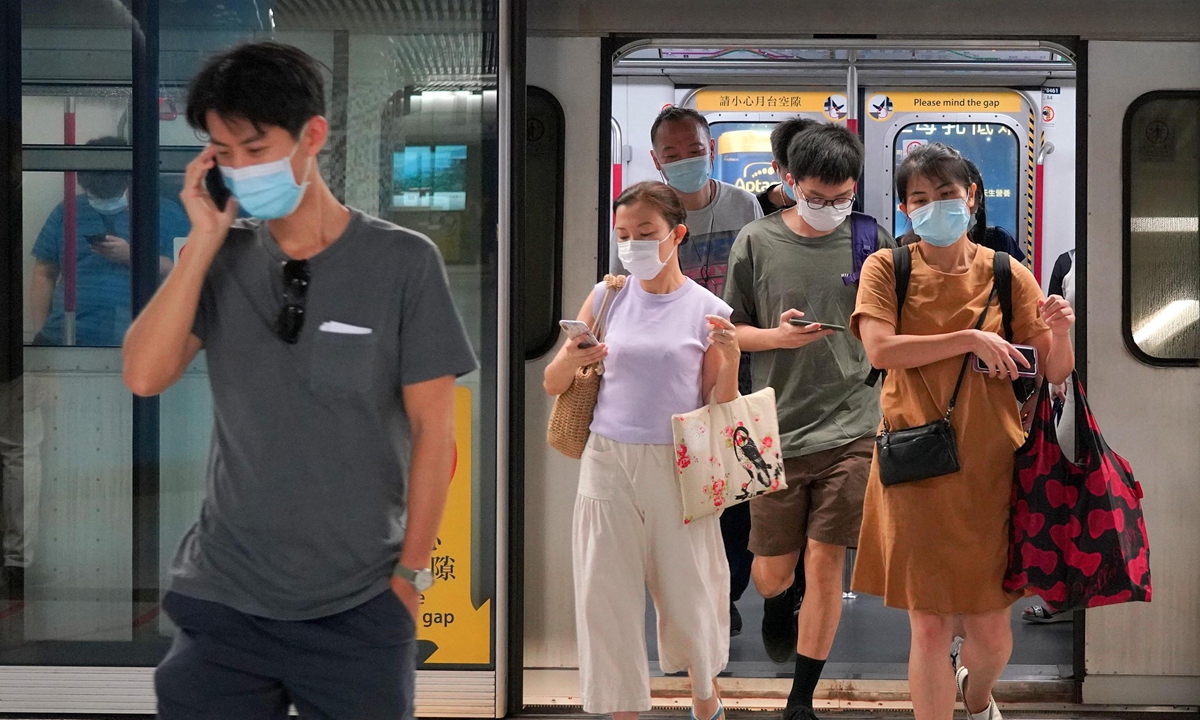HK’s new coronavirus wave linked to Philippine
By Zhang Hui Source: Global Times Published: 2020/8/6 12:56:50
Outbreak may ebb in two weeks but high rebound risks remain

Hong Kong Photo:VCG
Genetic sequencing of the virus from Hong Kong's third wave of the epidemic since July has revealed that it came from imported sources, including Philippine sailors and flight crews from Kazakhstan, a Hong Kong virologist said.
The virologist predicted that the latest outbreak is likely to be brought under control in two weeks, but warned that Hong Kong has a much higher risk of a resurgence of the coronavirus than other Chinese cities due to factors including being a financial hub with a high population mobility and density.
Only one source resulted in the widespread infections in districts across Hong Kong, as genetic sequencing conducted by the University of Hong Kong and Hong Kong Polytechnic University showed that in most cases, the virus strains in Hong Kong shared similarities with the virus circulating in the Philippines, Jin Dongyan, a professor at the School of Biomedical Sciences at the University of Hong Kong, told the Global Times on Thursday, noting that the strains tracked to other sources, including people from Kazakhstan and Pakistan, had very low levels of community transmission.
"One patient infected several hundred others in Hong Kong, which showed that there is a super-spreader in this fresh epidemic, and this super-spreader is probably a Philippine sailor," he said.
The Hong Kong health authority has not yet found the super-spreader, he said.
Gilman Siu, an associate professor at the health technology department of Hong Kong Polytechnic University, said on July 28 that his research team found that 19 of the 26 samples from the local confirmed cases in the third wave of the outbreak were found to have a strain of the virus extremely similar to those from the Philippines, Hong Kong media outlet Mingpao reported on July 28.
Health experts in Hong Kong, who believe that loopholes in COVID-19 measures at ports caused the spike, have called on the Hong Kong government to step up testing and quarantine measures at ports for the coming weeks.
Some 24 airline crew members and sailors tested positive in July. Between July 1 and 27, 76 people who originated in the Philippines were identified as infected. At least 15 of them were sailors, according to Hong Kong media.
Airline crew and sailors have been exempt from tests and quarantine obligations in Hong Kong since early June, but with the resurgence of the third wave of the epidemic in July, the Hong Kong Center for Health Protection asked airline crew members to undergo mandatory COVID-19 testing upon arrival at Hong Kong international Airport from July 8.
On July 26, Hong Kong further tightened its COVID-19 measures, requiring all ship's crews to remain onboard their vessels during their stay in Hong Kong waters and not go ashore. It also required incoming crew members arriving at Hong Kong International Airport to possess a negative nucleic acid test result for COVID-19.
The number of Hong Kong's daily confirmed COVID-19 cases has slowly dropped to below 100 since Monday, but Thursday's new infections rose to 95 from the previous day's 85.
Jin said that the peak of the third wave coronavirus infections has passed, and Hong Kong's fresh outbreak is likely to ebb in two weeks if no other super-spreader emerges.
The number of daily new cases may drop to below 10 to even near zero two weeks later, he said.
But Jin warned that Hong Kong is facing a much higher risk of a COVID-19 rebound than other Chinese cities, and the Hong Kong government and society cannot lower their guard even after this outbreak ebbs.
"Frequent international exchanges, high population mobility and density as well as frequent outdoor dining make the financial hub vulnerable to a resurgence of coronavirus," Jin said.
He said that Hong Kong must establish a complete mechanism for regular COVID-19 prevention and control at airports and ports, and continue limiting indoor gatherings to prevent a resurgence of a major outbreak and guarantee that work can resume safely.
Posted in: HK/MACAO/TAIWAN,CHINA FOCUS